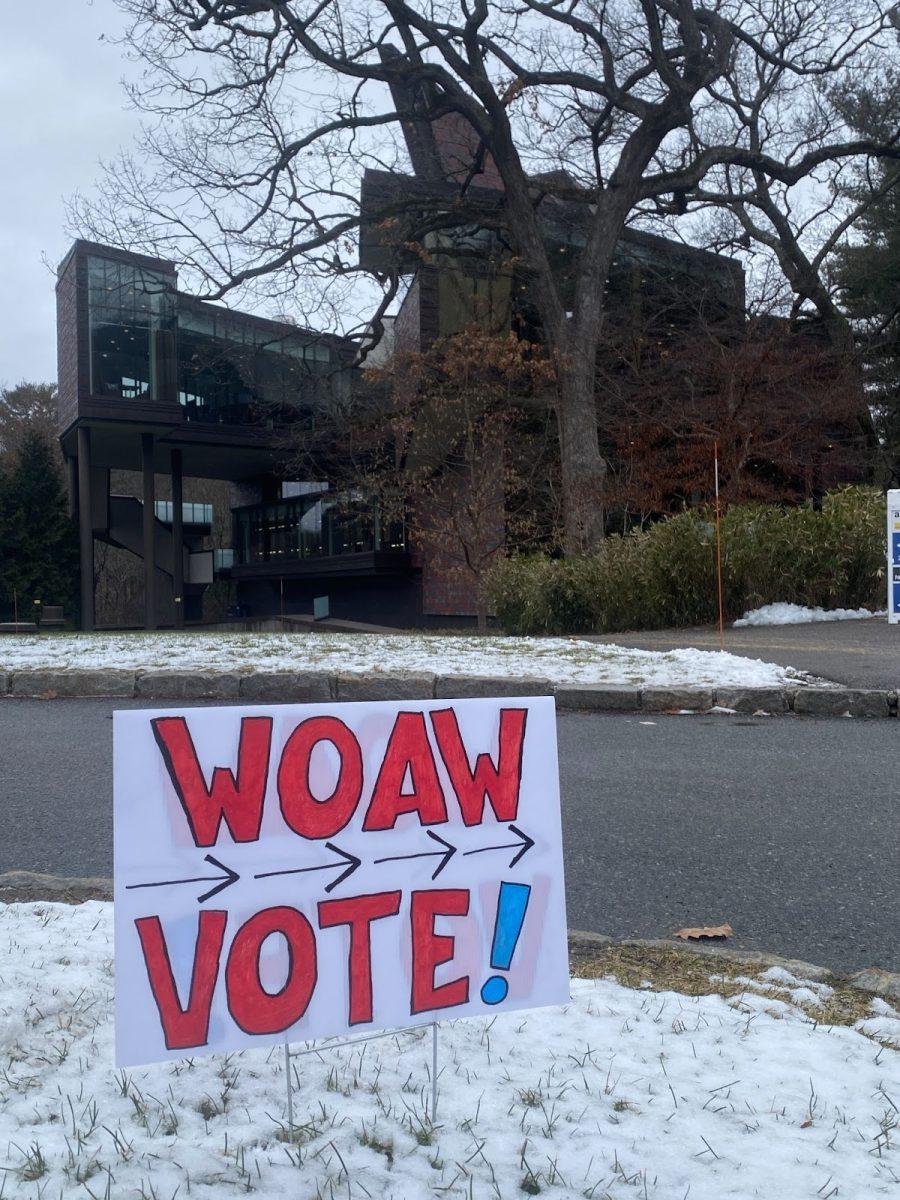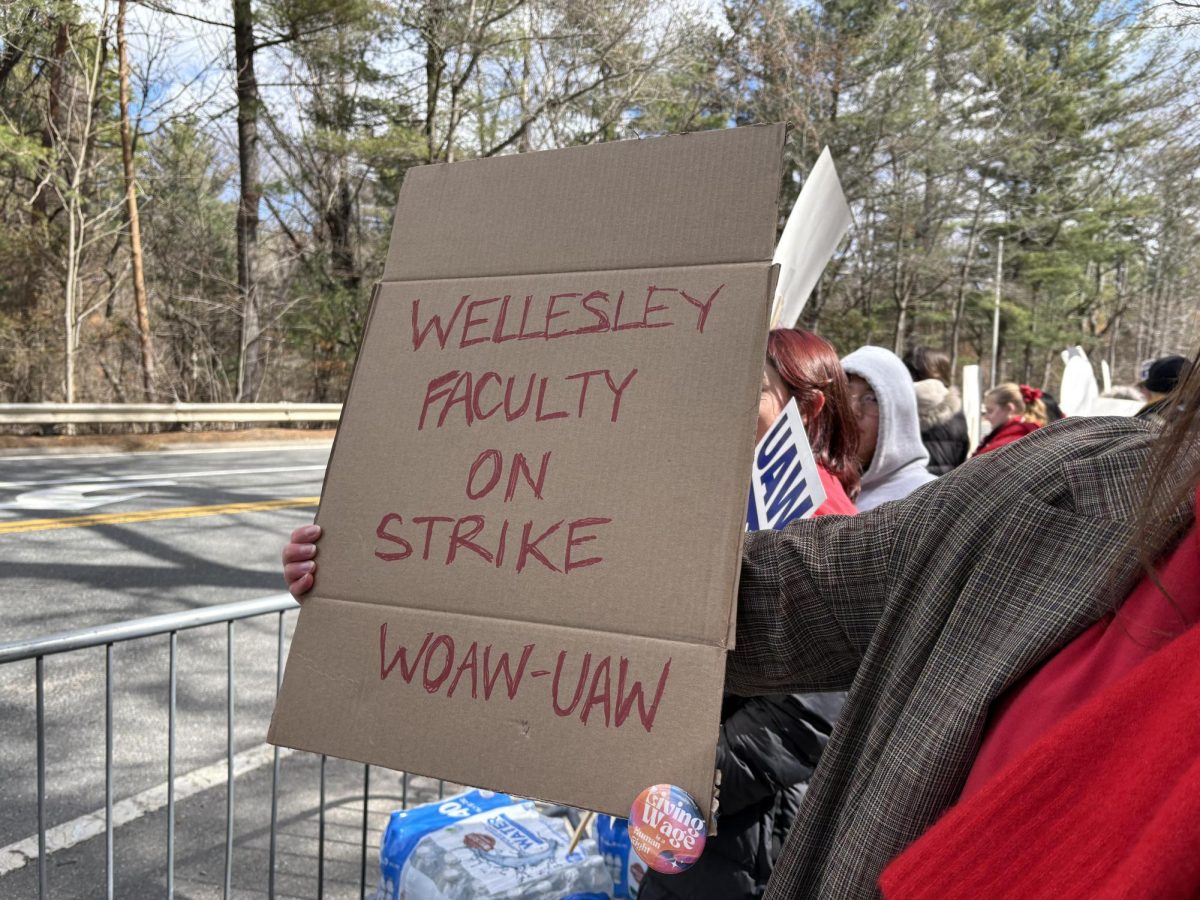On Jan. 30, Wellesley Organized Academic Workers (WOAW) announced that the vote for a WOAW-UAW union had passed.
“This historic union victory is an expression of our desire for a stronger, more connected community where everyone can thrive,” read an email from Erin Battat, Heather Bryant and Annie Brubaker on behalf of the WOAW-UAW organizing committee.
Voting took place on Monday, Jan. 29, and Tuesday, Jan. 30 in the Diana Chapman Walsh Alumnae Hall. 92.8% of FIP faculty voted to unionize and be represented by the Wellesley Organized Academic Workers (WOAW), affiliated with the United Auto Workers (UAW). The term “FIP” is used by Wellesley College to refer to Faculty on Term Appointments and Instructors of Science Labs, Physical Education, Recreation and Athletics.
According to Professor Annie Brubaker, senior lecturer in the Writing Program, the vote signifies strong solidarity among faculty members.
“80% [of eligible faculty members] turned out, which is a really remarkable turnout rate. I think that’s terrific, because it really shows that people cared,” she said. “There’s no mystery now that this is what we want as a community.”
The necessity for this vote was tied to the College’s refusal to voluntarily recognize the WOAW Union. FIP faculty delivered a letter to President Johnson and Provost Shennan requesting recognition for their union in late November. President Johnson’s response letter on Nov. 28 declined to voluntarily recognize the union. The next day, WOAW-UAW filed for an election with the National Labor Relations Board (NLRB).
Hannah Grimmett ’25, heavily involved in UNILAD, the union and labor task force in Wellesley Against Mass Incarceration has advocated for a faculty union for the past two years. She is hopeful the union’s newly won legal status will change the dynamic between faculty and the College.
“Now that this vote has passed, it means that the faculty have legal bargaining rights with the College. That means that the College, or legal representatives of the College, and the faculty will come together at the bargaining table and legally be on an even playing field. The two sides have to listen to each other, more importantly, the College now has to listen to the faculty and their demands,” she commented.
WOAW faculty now move into the bargaining phase with the College. Visiting Lecturer in American Studies, Ian Alexander, spoke on what this process will look like.
“Now, much of the process is really about changing the dynamic [between faculty and the College] through contract negotiation in very specific material ways. So I wouldn’t say that anything immediately changes as a result of the vote except that now the union is legally recognized as representative of contract-faculty and everyone who is in the union to negotiate the terms of their employment going forward.”
Student response on campus has been supportive of the new union. “I’m very excited,” expressed Evelyn McLear ’25. “I’ve been aware of the unionization effort since the Fall, so I’ve been hearing about it gaining support but didn’t think it would happen so soon.”
“Nothing is ever going to be 100%, but it’s telling that the vote passed at such a high number,” said Zeina Nassif ’26.
On Jan. 31, the College issued a response to the results of the election. “The College looks forward to working productively with WOAW-UAW leadership and laying the groundwork for future cooperation,” the statement read. However, the timeline for the bargaining and negotiation phase remains unclear.
“We need to do some work together as a community to understand what our priorities are and then we’ll begin a formal negotiation process,” Brubaker said. “It could take a while to reach an agreement. It depends on what we decide to prioritize and ask for and how the college responds to that. I think our hope would be that [change] could be before the start of the next academic year.”




